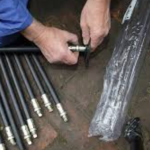When you’re organizing an outdoor event, one of the most important things to consider is your environmental impact. Customers are paying more attention to green issues than ever before, so you want to be sure your environmental credentials are up to scratch. There are many things to consider when organising an outdoor event, such as entertainment, safety, toilet facilities and medical care. For Event Medical Cover, visit https://www.outdoormedicalsolutions.co.uk/event-medical-cover/
To make things easier, here are some tips for making your event more sustainable, so you can get that aspect nailed, leaving you to focus on the rest of the organisation.
1. Consider your impact
Before you can plan, it’s important to understand what your impact will be. Consider things like disposable materials, litter, transport and power consumption for example. Making a list and dividing things into groups can help you to measure and reduce your impact in each area. If your event is an annual occurrence, perhaps focus on one new area each year to try to reduce your footprint in that area.
Decide which areas are the most important and can make the most impact. Focusing on the highest impact areas, you can make a bigger and more noticeable difference to your impact reduction. Why not focus on the area that will also save you the most money, like reducing disposable materials and food waste?

Image credit
2. Plan & Delegate
If you fail to prepare then prepare to fail. We’ve all heard that saying before! Without planning and setting realistic goals, you’ll fail to see the plan through and fail to recognise any achievements you make. If you try to take on too much, you will be disappointed with the results and may give up altogether. Start small, achieve well and encourage yourself for future reductions in environmental impact.
Event organisers are extremely busy people, so remember you can delegate these tasks to others. Pass on the responsibility to someone who you trust to carry out your plans, monitoring and recording of more sustainable actions. Create realistic goals and achievable milestones. If you’re using contractors, make sure they have reasonable key performance indicators to work towards.
3. Contractor Involvement
Involving contractors early means they can be better prepared to help you in your mission. Make sure your contractors know that they must use recyclable or environmentally friendly materials, such as not bringing shattering plastic cups into a beautiful nature area for example.
4. Recycling Bins
An absolute must at events these days is a good supply of accessible recycling bins. It’s expected by most and also serves as a way of encouraging attendees to embrace recycling and demonstrates that you care about the environment. Clear signage for each bin and its use is important. Make sure signage is at eye level, has small enough openings so that only certain items can be put into the receptacle and don’t just use a wheelie bin with the lid left open.

Image credit
5. Before & After
Think about simple changes you can make before and after your event too. One of the biggest impacts on the environment comes from the transport to and from the event. Start your planning process by focusing on initiatives to discourage single car use and encourage green activities like walking and cycling. Lots of travel information made available and special coaches laid on for attendees are also ideas that can be put into place to reduce carbon footprints.













